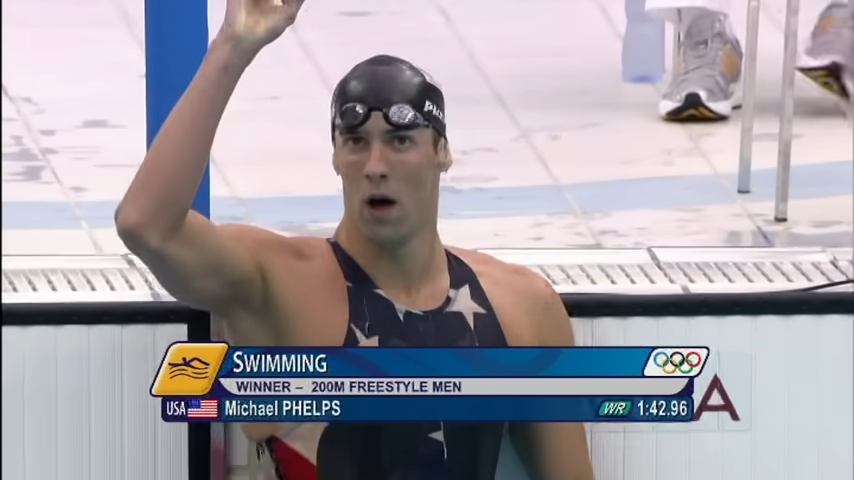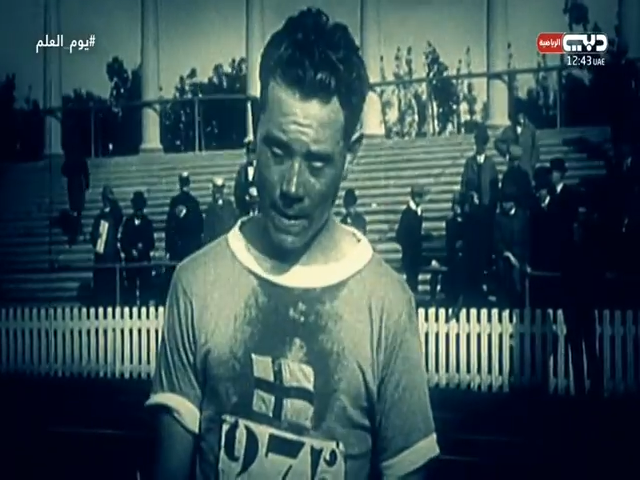Yes, it’s that time again, where the world congregates for the international quadrennial referred to as the Olympic games. Years of planning, training and preparation culminate all at once in a succession of organized competitions where the world’s best athletes voraciously compete for the desired accoutrement of gold. Heroes will emerge, as each athlete hopes to bear the standard of their country with unflagging pride.
While this year’s Olympics will transpire in Paris, the ancient Olympics began as early as 776 BC in Greece, fashioned as a religious festival to honor the patriarch of the Olympian pantheon of Gods, Zeus. While our contemporary Olympics are circumscribed to two weeks, originally the Olympics could last as long as six months. Predominantly, the competition was organized as an allowance of time for Greeks across the Mediterranean to converge and participate in revelry. Anyone of consequence in the Hellenistic world arrived at the games, eager to embrace opportunities for patronage, influence, or outright ribaldry. It acted as a unifying endeavor amongst the frequent in-fighting of Greek city-states and persisted for almost 1,000 years; until Emperor Theodosius I of the Roman Empire excised them from existence, regarding them as a frivolous pagan affair.
Largely as a result of the concerted efforts of Baron Pierre de Coubertin, a French sportsman, a modern revival of the Olympic games began to germinate in the late 19th century. In November of 1982, at a congregation held at the Union des Sports Athletiques in Paris, official approval was granted for the formation of an International Olympic Committee (IOC), which would become the formal governing body of the modern Olympics games.
Four years later, in 1896, the first modern iteration of the Olympic games were held in the land of their origin – Athens, Greece. 60,000 spectators observed the spectacle of 280 athletes, hailing from 12 different countries, compete in 43 events, including track and field, gymnastics, swimming and wrestling. From its rudimentary roots as a contemporary competition, the Olympics have vastly expanded in the ensuing century, now including over 10,000 athletes competing in 329 disciplines at the 2024 Summer Olympics. The interlaced rings, all of varying color, continue to act as symbolic visuals of unity in world characterized by often fractious and petty squabbles.
In this article, we’ll explore the athletes that have defined the modern summer Olympic games, performing frequently superhuman feats of excellence to emerge victorious, proudly draping themselves in gold.
Michael Phelps (United States)

Medal Count: 23 Gold, 3 Silver, 2 Bronze
Narrative: An Olympic swimmer from the United States, Michael Phelps is the most decorated Olympian of all-time. Apart from his overall medal count, he likewise has accrued the most gold medals of all-time, counting 23. Raised in a family of swimmers, he quickly displayed a precocious adeptness to it. In 2001, at the US Spring Nationals, he posted a world record when he finished the 200 meter butterfly in 1 minute and 59.42 seconds. His early successes would prove a staunch portent of more significant things to come.
In 2004, at the Olympic games in Athens, Phelps won 6 gold medals in swimming events, ranging from the 200 meter butterfly to the 4 x 100 meter medley relay. Entering the 2008 Olympics in Beijing, Phelps was determined to exceed the feats of a previous swimmer, Mark Spitz, who won 7 gold medals during the 1972 Munich games. In an astonishing display of mettle and willpower, Phelps claimed 8 gold medals in China, setting a world-record in all but one of his performances. At the Olympic games in London during 2012, Phelp’s performance notably tapered for an athlete of his reputation, as failed to medal in his opening event, the 400-meter IM. To say he underperformed in London, however, would be hyperbole; as he still managed to capture 5 gold medals and 1 silver medal.
After London, Phelps briefly declared his retirement from swimming. Yet, his commitment to a less daunting lifestyle proved fleeting, as he reneged on it in 2014, when he announced he’d be competing in the 2016 Olympic games in Rio de Janeiro. In Brazil, Phelps captured his similar assortment of medals, though his most impressive accomplishment may have been edging out South African swimmer Chad le Clos in the 200 M butterfly, Phelps’ signature event, a swimmer who had previously bested Phelps in 2012 by five-hundreths of a second.
As a swimmer, Phelps brooks no rival, historically speaking. His longevity and fastidious industry made him the consummate Olympic athlete. He is the most decorated Olympian of all-time, a standard which he is likely to bear for a considerable amount of time.
On Americana: “I wouldn’t say anything is impossible. I think everything is possible as long as you put your mind to it and put the work and time into it.” – Michael Phelps
Usain Bolt (Jamaica)

Medal Count: 8 gold medals
Narrative: An Olympic sprinter, hailing from Caribbean island of Jamaica, Usain Bolt is widely regarded as the greatest sprinter of all-time. In 2008, 2012, and 2016, he won gold medals in each of the 100 and 200 meter contests organized. For Jamaicans, Usain Bolt is a heralded national treasure, akin to the Brazilians reverent affection for Pele.
Bolt displayed prodigal talent as track athlete. Notoriously, however, he lacked the conventional metrics associated with a track star. Notably, Bolt stood at 6”5, a commanding vertical presence in track that was deemed a liability in facilitating a swift start. Despite his anomalous characteristics, Bolt nevertheless managed to achieve success after success. At 15 years old, competing before 36,000 spectators at National Stadium in Kingston, Bolt won gold in the 200 meters; becoming the world’s youngest ever male-world champion.
In 2008, in Beijing, Bolt was a supernova, becoming the first man since Carl Lewis to win the 100 meters, 200 meters, and 4 x 100 meter relay in a single Olympics; and also to set three world records in the aforementioned categories. Bolt recalled a similar dominance in 2012, capturing gold in the 100 meter, 200 meter and 4 x 100 relay. And, in Rio de Janeiro in 2016, Bolt again completed a trifecta, winning gold in each of his signature events. Age, it seemed, had little adverse effect upon him.
The name “Usain Bolt” has become inextricably synonymous with speed. What an apt name for the fastest man alive! One wonders, indeed, if it is merely a peculiar coincidence or merely a pseudonym; that he should be named so. Regardless, Bolt’s natural charisma in conjunction with the already captivating sprint contests he participated in, bolstered the popularity of track and field worldwide. As with many athletes included on this list, Bolt serves as a seminal inspiration to the next generation of track athletes.
On Diet: “I’ve tried my hardest to bribe my chef, but my team have been clever and hired someone who not only is not bribeable but who chases me round the house and makes sure I eat what he’s cooked, and he lays out my vitamin pills and supplements in front of me so I can’t ‘forget’ to take them.” -Usain Bolt
Jesse Owens (United States)

Medal Count: 4 gold medals
Narrative: Though the overall resume of Jesse Owens may not necessarily compare favorably to those held in similar stature, the measure of his greatness is not entirely reflected in his medal count. Indeed, he is still the first American track and field athlete to win four gold medals in a single Olympiad; yet, his historical influence is far broader, as his victories were earned within the context of the 1936 Olympic Games in Berlin, Germany, with the international community on the precipice of war. With Adolf Hitler looking on, Jesse Owens’ — an African American male — successive victories served as a staunch blow to Hitler’s purported schemata of Aryan superiority.
During the 1936 Olympic Games, Owens did, indeed, put on a spectacle. Similar to Usain Bolt, he earned gold medals for the 100 meter, 200 meter, and 4 x 100 relays; while also earning a 4th gold medal in the long jump. In an apocryphal tale whose legend has grown, the myth has persisted that Hitler refused to congratulate Owens after his victories. While this is not the case – Hitler had decided to definitively offer no congratulations to any athlete whatsoever – There is no doubt that Owens prevailed against an atmosphere boiling over with racial resentment, and not only in Germany.
After competing in the Olympics, Owens largely served as an international ambassador of good-will for the United States. He made state visits to India and East Asia on behalf of the US State Department while also working in public relations. After he died in 1990, he was posthumously awarded the Congressional Medal of Freedom.
On Humanity: The only bond worth anything between human beings is there human-ness.” – Jesse Owens
Paavo Nurmi (Finland)

Medal Count: 9 gold medals, 3 silver medals
Narrative: A relatively early Olympian, Paavo Nurmi was a Finnish long-distance runner who was a distinguished long-distance runner, commanding the sport in three Olympic games, in 1920, 1924 and 1928. During that timeframe, Nurmi won a cumulative total of 9 gold medals, and 3 silver medals.
Inspired by his countryman, Hannes Kolehmainen, who was victorious in three long-distance races during the 1912 games, Nurmi spearheaded a group of Finnish runners who would collectively become referred to as the “Flying Finns.” During the 1920 Olympic games in Antwerp, Nurmi won the 10,000 meter run and 10,000 meter country race. His most memorable feat, however, came 4 years later in Paris, where Nurmi set Olympic records in the 1,500 meter and 5,000 meter runs.
Though Nurmi lost his amateur status in 1932, he continued to race in Finland until 1934. He is widely considered a national icon in Finland, lighting the Olympic flame to announce the beginning of the 1952 Olympics in Helsinki. Before Finland adopted the euro, Nurmi also appeared on Finnish currency, his personage being depicted on the 10 markaa banknote.
On Mental Toughness: “Mind is everything. Muscle – Pieces of rubber. All that I am, I am because of my mind.” – Paavo Nurmi
Florence Joyner (United States)

Medal Count: 3 gold medals, 2 silver medals
Narrative: Florence Griffith Joyner was a US sprinter hailing from Los Angeles, California. She began running at the age of 7, often chasing jackrabbits to increase her footspeed. She showed pronounced talent quickly, receiving a track scholarship at UCLA, where she trained under the tutelage of Bob Kersee. At the 1984 Olympics in Los Angeles, she displayed her burgeoning talent to the world, winning a silver medal in the 200 meter race. Apart from her prodigious talent as a track athlete, she also won celebrity because of her flamboyant fingernails and exuberant race suits, fitting for a woman who grew up in the vicinity of Hollywood.
At the 1988 Olympics, she exceeded even her own expectations. During the 1988 trials, “FloJo” set a world record for the 100 meter dash, besting the previous mark by .27 seconds. Later that year at the Olympic games, she achieved the same gold medal trifecta as Usain Bolt, wining in the 100 meter, 200 meter, and 4 x 100 relay. Griffith-Joyner’s records in the former two races (100M, 200M) have yet to be broken. She remains, until proven otherwise, the fastest women on record.
After retiring in 1989, Griffith-Joyner established a foundation for underprivileged children. An attempted comeback was announced 1996, but was stunted as a consequence of a leg injury. “FloJo” passed away at the age of 38, suffering an epileptic seizure.
On Orthodoxy: “Conventional is not for me. I like things that uniquely ‘Flo.’ I like being different.” – Florence Griffith-Joyner
For additional sports-related topics, reference the following articles:
5 of the Best NBA Playoff Moments of All-Time
Prolific Posterizers: The Most Disrespectful Dunks Of All-Time



